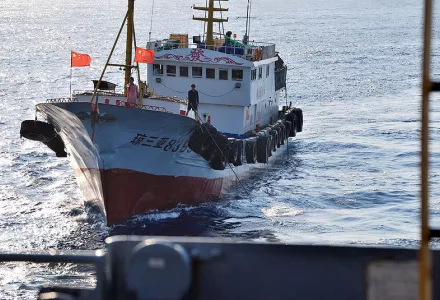The Contest for the "Free Sea": Variation and Evolution in the Global Maritime Order
Speaker: Rachel Esplin Odell, Research Fellow, International Security Program
In the growing peacetime naval competition between the United States and China, the divergence in the two countries' interpretations of maritime law has become a locus of contention. Both states maintain that they prioritize "freedom of navigation" (hangxing ziyou) and have done nothing to obstruct it, and each side insists that its position is firmly grounded in international law. The broader context often missing in discussions of this dynamic is that states' interpretations of key provisions in the international law of the sea related to coastal state jurisdiction vary widely. This seminar will present findings from a new global dataset of state's maritime jurisdictional claims as a window into understanding the range of this variation. The seminar will then present a theory to explain patterns of change and stasis in state's interpretations of the law of the sea over time, accompanied by empirical evidence from field research conducted in four country case studies: the United States, Japan, China, and India.
Please join us! Coffee and tea provided. Everyone is welcome, but admittance will be on a first come–first served basis.




